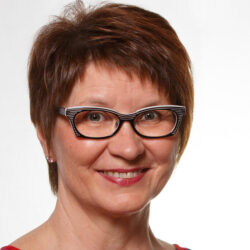Ongoing Research Projects
My research orientation is cross-cultural comparative research. My international research projects focus on:
- leadership
- examination ECE internationally
- studying ECE leaders’ leadership and management tasks
- professionalism in ECE internationally
- education in a changing society
National research focus on:
- developing practices in ECE
- leadership and quality
- examining ECE in Finnish context
- children in child care from point of view of observation and assessment
International Research on Leadership and Management Tasks in ECEC
In Collaboration:
- Professor Manjula Waniganayake, University of Macquarie, Sydney, Australia
- Professor Mariko Matsumoto, Nagoya University, Nagoya, Japan
- Professor Masahiro Kawase, Nagoya University, Nagoya, Japan
- Translator Tristan Narbrough, Japan
Examination ECE internationally In Collaboration:
- Professor Marika Veisson, Tallinn University, Estonia
Leadership Tasks in Early Childhood Education
Leadership research in early childhood education and care (ECEC) is quite a young arena. It combines leadership concepts from school research as well as from business. There are common aspects in leadership profession in general but the context and the mission define the content of leadership tasks and responsibilities. In Finnish early childhood education pedagogical leadership, humanresource management, and daily managerial tasks are the main functions of leaders’ work. An ECEC leader’s work either as a centre director or as a municipal administrative ECE leader are quite the same. Human resource management dominates most of their leadership work.
Importance of leadership tasks and time management differ according to the position of leadership. Full time leaders consider human resource management important and this work can dominate the allocation of their time. Pedagogical leadership dominates part-time leaders’ working day but they define daily managerial tasks as being most important. The splintered nature of the daily work profile can frame EC leadership. That is, the leadership tasks are not clear and the concept of pedagogical leadership is silenced in ECEC centres. In order to implement high quality ECEC programs, the mission, core tasks and leadership responsibilities connected to them must be clearly defined.
Full article Leadership Tasks in Early Childhood Education can be downloaded from Tampub.
Professionalism of Preschool Teachers and Connection with Leadership: a Cross-Cultural Study
Aim of this empirical study is to evaluate the leadership role of Estonian, Finnish, Swedish and Hungarian preschools teachers and principals in the process of defining the professionalism of preschool teachers. Data is collected by questionnaires and focus group interviews.
In collaboration:
- Researcher Tiina Peterson, Estonian Ministry of Education and Research, Estonia
- Professor Marika Veisson, Tallinn University, Estonia
- Professor Eeva Hujala, University of Tampere, Finland
- Professor Ulla Härkönen, University of Eastern Finland, Finland
- Anette Sandberg, University of Mälardalen, Sweden
- Inge Johansson, University of Stockholm, Sweden
- Éva Kovácsné Bakosi, University of Debrecen, Hungary
Education in a Changing Society
The purpose of this comparative and longitudinal research is to study the interaction and integration of the home and formal childcare in Finland, Russia and the USA during the past two decades, 1990-2011. Contemporary research in the three countries included in the study represents different orientations about how families and child care centers influence each other. Russia and the USA are at the opposite poles of these orientations while Finland stands somewhere in the middle. In Russia, society has traditionally had a strong ideological power over families, whereas in the USA, families have power over child care choices if they can afford them. In Finland, according to the social service ideology, child care must be arranged by the government according to the needs of the children and the families. Based on the contextual theory of child’s growth (Hujala 1996), the study examines children’s growth, development and wellbeing as interaction between children and their growth environment. Early childhood education is defined as a co-operative process between the stakeholders involved in early education.
The aim of the research is to study changes in families, in child care and early childhood education and its practices, and to assess how the changes in society have affected the implementation of early education at home and in formal child care. The study has been carried out as a cross-cultural, comparative case study. The cross-sectional data has been collected during three phases, 1990-1991, 2000-2001, and 2010-2011 from the three societies included in the study. The data will be analyzed as case studies with multivariate methods. The quantitative analyzes will be enhanced with qualitative cases. Due to the comparative and cultural nature of the study, the data will be analyzed in co-operation with the American and Russian researchers.
In collaboration
- Researcher Janniina Elo, University of Tampere
- Assistant Professor Jess Essary, Zayed University, UAE

